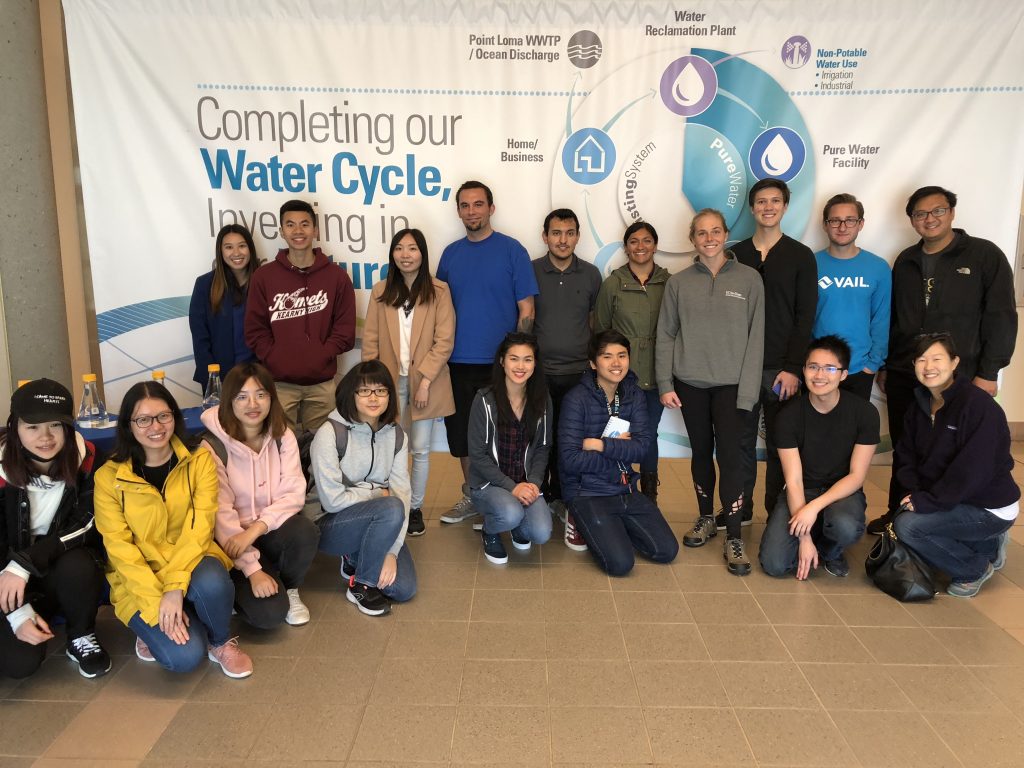
NANO 280 class visits the San Diego Pure Water Demonstration Facility to learn about the role that nanotechnology plays in water up-cycling.
NANO 102
This course is intended primarily as introduction to the chemistry of nanoscale systems for undergraduates. Topics include: Atomic, molecular, and extended structures; Band structure; Quantum dots; Carbon-based materials; Descriptive crystal chemistry; Nanoparticle synthesis; Surface energy; Self-assembly; Special topics in nanosynthesis and nanofabrication.
NANO 120A&B
This laboratory experience is intended to educate and train students in nanoscale science, devices and systems, and nanofabrication processes with an awareness of the societal, ethical, economical, and environmental implications of nanotechnology. Students will learn about the application and integration of technologies in the design and production of nanoscale components. Teams will be formed to tackle interdisciplinary fabrication and design projects. Students will be expected to apply their range of knowledge and skills gained from previous lecture-based courses.
NANO 203/CENG 213
This course will cover key concepts in nanosynthesis and material characterization for graduate students and advanced undergraduates. The goal of this class is to explore different strategies for synthesizing low-dimensional nanomaterials (e.g., nanocrystals, nanotubes, nanowires) and common techniques for nanoscale materials characterization. In addition, this course will cover fundamental chemical principles of bonding, electronic structure, and atomic arrangements.
NANO 264
This course will cover key concepts in nano- and solid-state chemistry for graduate students and advanced undergraduates. This objective of this course is to explore fundamental chemical principles of bonding, electronic structure, and atomic arrangements, and to apply these principles toward engineering nanomaterials and systems. Topics covered include: descriptive crystal chemistry, structure determination, phase diagrams, free electron gas in dimensional solids, tight-binding approximation, band structure; nanomaterials synthesis.
NANO 280
This course will cover fundamental concepts and laboratory techniques to study the chemical and physical properties of colloids and nanoparticles. Topics covered include: colloid and surface forces, Brownian motion, aggregation, steric stabilization, optical characterization techniques, and self-assembly. Recent developments in colloids and nanotechnology will be discussed throughout the course.
CENG 258
This course will serve as a graduate-level introduction to catalysis and surface science. A specific focus will be given to nanocatalytic materials, where reducing the physical dimensions of the catalyst material results in chemical properties that are non-scalable from the bulk. Topics include: surface structure, adsorption/desorption kinetics, chemical bonding, thermodynamics of the surface, experimental techniques, and nanoscale materials.
